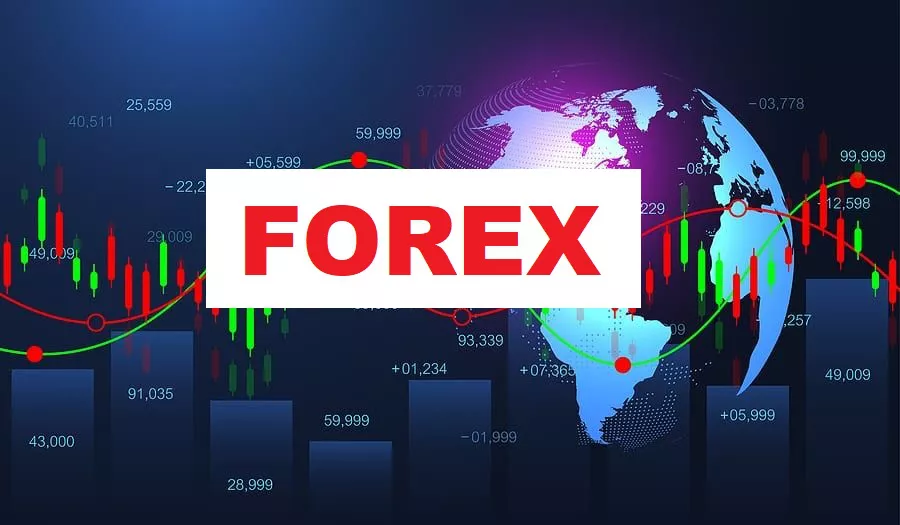In the vast and dynamic world of financial markets, the foreign exchange (forex) market stands out as one of the most liquid and actively traded markets globally. With trillions of dollars exchanged daily, the forex market offers unique opportunities for investors and traders to profit from currency fluctuations. However, navigating this complex market requires a deep understanding of its mechanics and the role of various participants, including brokers. This article delves into the crucial role of forex brokers, their functions, types, and the factors to consider when choosing one.
What Is Forex Brokers
A forex broker is an intermediary that facilitates transactions between buyers and sellers of foreign currencies. Unlike traditional stock brokers who trade in equities, forex brokers specialize in currency pairs, enabling clients to speculate on the value of one currency against another. The forex market operates 24 hours a day, five days a week, across various global financial centers, making it a highly accessible and dynamic trading environment.
Forex brokers serve as a bridge between retail traders and the interbank market, where large financial institutions conduct currency transactions. They provide a platform for individuals and small institutions to access the forex market, offering tools, resources, and execution services to facilitate trading.
Functions of Forex Brokers
Forex brokers fulfill several critical functions that are essential for the smooth operation of the forex market and the success of individual traders.
1. Execution of Trades
The primary function of a forex broker is to execute buy and sell orders on behalf of their clients. Brokers offer various execution models, including:
Market Execution: Orders are executed immediately at the best available market price.
Instant Execution: Similar to market execution but with slight delays due to additional safety checks.
Pending Orders: Orders that are executed when specific market conditions are met, such as stop-loss and take-profit orders.
Brokers use sophisticated trading platforms, such as MetaTrader 4 (MT4) and MetaTrader 5 (MT5), to facilitate order execution and provide real-time market data.
2. Access to Liquidity
Forex brokers provide access to liquidity, which is crucial for the smooth functioning of the market. They have established relationships with banks and other financial institutions that act as liquidity providers. This ensures that traders can buy and sell currencies at competitive prices, even during periods of high volatility.
3. Customer Support and Education
Effective customer support is a hallmark of a good forex broker. Brokers offer various support channels, including live chat, email, and phone support, to assist clients with account-related queries, technical issues, and trading advice.
Additionally, brokers provide educational resources to help traders improve their skills and knowledge. These resources may include tutorials, webinars, trading guides, and access to market analysis tools.
4. Risk Management Tools
Forex trading involves significant risks, and brokers play a pivotal role in helping clients manage these risks. They offer various risk management tools, such as leverage, margin requirements, stop-loss orders, and take-profit orders. Leverage allows traders to control larger positions with a smaller initial deposit, but it also amplifies potential losses. Margin requirements ensure that traders maintain sufficient funds in their accounts to cover potential losses.
5. Regulatory Compliance
Forex brokers are subject to strict regulatory oversight to ensure the integrity and fairness of the market. Regulatory bodies, such as the Commodity Futures Trading Commission (CFTC) in the United States, the Financial Conduct Authority (FCA) in the United Kingdom, and the Australian Securities and Investments Commission (ASIC) in Australia, oversee the activities of forex brokers. These bodies enforce rules and regulations to protect traders from fraud, manipulation, and other unfair practices.
Types of Forex Brokers
Forex brokers can be classified into several types based on their business models, services offered, and target clientele.
1. Dealing Desk Brokers (DD Brokers)
Dealing desk brokers, also known as market makers, act as counterparties to their clients’ trades. They take the other side of the trade, creating a market for their clients. DD brokers may offer fixed spreads, which are the differences between the buy and sell prices of a currency pair. Fixed spreads provide traders with certainty regarding transaction costs but may not always reflect true market conditions.
DD brokers may also engage in practices such as last look, where they have the right to reject trades if the market moves against them before execution. This can lead to potential conflicts of interest and unfair trading conditions.
2. No Dealing Desk Brokers (NDD Brokers)
No dealing desk brokers do not act as counterparties to their clients’ trades. Instead, they pass client orders directly to liquidity providers, such as banks and other financial institutions. NDD brokers offer more transparent trading conditions, as they do not influence the prices of currency pairs.
NDD brokers can be further classified into:
STP (Straight Through Processing) Brokers: These brokers route client orders directly to liquidity providers with minimal intervention. STP brokers typically offer variable spreads, which reflect real market conditions.
ECN (Electronic Communications Network) Brokers: ECN brokers provide direct access to the interbank market, allowing clients to trade with multiple liquidity providers simultaneously. ECN brokers offer the tightest spreads and the most competitive pricing, but they may charge commissions for each trade executed.
3. Hybrid Brokers
Hybrid brokers combine the features of dealing desk and no dealing desk brokers. They may offer fixed spreads for certain currency pairs and variable spreads for others. Hybrid brokers may also provide access to liquidity providers but may still act as counterparties in some situations.
4. White Label Brokers
White label brokers are financial institutions or companies that offer forex trading services under their own brand but use the technology and infrastructure provided by another broker. This allows white label brokers to focus on marketing and customer service while relying on the expertise of the underlying broker for trading execution and risk management.
Choosing a Forex Broker
Choosing the right forex broker is crucial for the success of your trading endeavors. Here are some key factors to consider when selecting a broker:
1. Regulation
Regulation is the cornerstone of trust and safety in the forex market. Ensure that the broker you choose is regulated by a reputable financial authority. Regulated brokers must adhere to strict rules and regulations, including capital adequacy requirements, risk management practices, and client fund segregation.
Look for brokers regulated by authorities such as the CFTC in the United States, the FCA in the United Kingdom, ASIC in Australia, or the Cyprus Securities and Exchange Commission (CySEC) in Cyprus. Avoid brokers that are not regulated or are regulated by unknown or untrustworthy authorities.
2. Trading Platform
The trading platform is the interface through which you will execute your trades and monitor your account. Choose a broker that offers a user-friendly, reliable, and feature-rich trading platform. Popular platforms include MetaTrader 4 (MT4), MetaTrader 5 (MT5), and cTrader.
Consider the following features when evaluating a trading platform:
- Real-time market data and charts
- Advanced order execution options
- Risk management tools
- Mobile trading capabilities
- Customer support integration
3. Fees and Commissions
Fees and commissions can significantly impact your trading profits. Look for brokers that offer competitive pricing, including tight spreads, low commissions, and no hidden fees. Be wary of brokers that charge excessively high fees or engage in practices such as spread widening or slippage, which can erode your profits.
4. Customer Support
Effective customer support is essential for resolving issues and obtaining assistance when needed. Choose a broker that offers multiple support channels, including live chat, email, and phone support. Look for brokers that provide 24/7 support, as the forex market operates continuously.
5. Educational Resources
Trading education is crucial for improving your skills and knowledge. Choose a broker that offers comprehensive educational resources, including tutorials, webinars, trading guides, and access to market analysis tools. These resources can help you stay informed about market trends, develop your trading strategy, and improve your risk management skills.
6. Funding Options
Funding your trading account should be easy and secure. Choose a broker that offers multiple funding options, including bank transfers, credit/debit cards, and electronic wallets. Ensure that the broker uses secure payment processors and adheres to strict data protection standards to safeguard your personal and financial information.
7. Reputation and Reviews
Research the reputation and reviews of the broker you are considering. Look for brokers with a positive track record, good customer feedback, and a strong presence in the forex community. Avoid brokers with a history of complaints, legal issues, or negative reviews.
Conclusion
Forex brokers play a crucial role in facilitating transactions in the foreign exchange market. They provide access to liquidity, execution services, customer support, and educational resources to help traders navigate the complex and volatile market. When choosing a forex broker, consider factors such as regulation, trading platform, fees and commissions, customer support, educational resources, funding options, and reputation. By selecting a reputable and reliable broker, you can improve your chances of success in the forex market and protect your investments from potential risks.
Related topics:


































